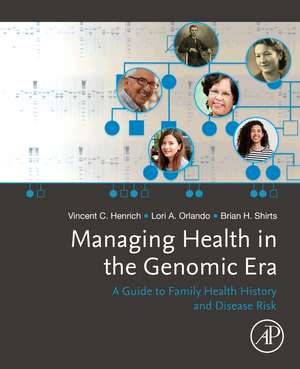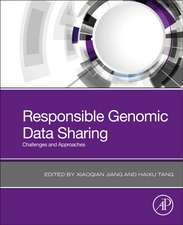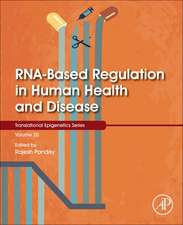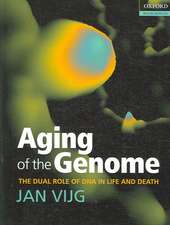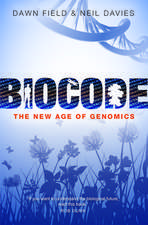Managing Health in the Genomic Era: A Guide to Family Health History and Disease Risk
Autor Vincent Henrich, Lori A. Orlando, Brian H. Shirtsen Limba Engleză Paperback – 28 iun 2020
Here, frontline healthcare providers will discover succinct commentary and key examples to assist with their local needs. Relevant principles of genetic biology and inheritance are explored and guidance on available support networks and online resources is also provided.
- 2021 PROSE Awards - Winner: Category: Clinical Medicine: Association of American Publishers
- Presents a practical, accessible resource for primary care providers, allied health professionals, pharmacologists, public health professionals, students and clinical researchers
- Addresses genetic and genomic approaches in managing patient health, conducting and analyzing family health histories, and assessing adult disease risk
- Features an expert author team with direct experience integrating genetics and genomics in primary care and family medicine settings
- Examines the attributes and limitations of family health history, genetic testing, and genomic testing in clinical practice
- Includes detailed explanations following practice-based examples
Preț: 616.21 lei
Preț vechi: 848.94 lei
-27% Nou
Puncte Express: 924
Preț estimativ în valută:
117.91€ • 123.36$ • 97.95£
117.91€ • 123.36$ • 97.95£
Carte tipărită la comandă
Livrare economică 26 martie-09 aprilie
Preluare comenzi: 021 569.72.76
Specificații
ISBN-13: 9780128160152
ISBN-10: 0128160152
Pagini: 238
Dimensiuni: 152 x 229 x 15 mm
Editura: ELSEVIER SCIENCE
ISBN-10: 0128160152
Pagini: 238
Dimensiuni: 152 x 229 x 15 mm
Editura: ELSEVIER SCIENCE
Public țintă
clinical and translational researchers; non-geneticist physicians, in particular pediatricians, primary care providers, family medicine doctors, internists, general practitioners, obstetricians and gynecologists, oncologists; pharmacists; pharmacologists; medical students and residents in various specialties; healthcare administrators and affiliates; genetic counselorsCuprins
1. The growing medical relevance and value of family health history2. Family health history’s place in genomic medicine3. The connection between genetic variation,family health history, and disease risk4. Family-specific genetic variants: Principles, detection, and clinical interpretation5. Genes and cancer: Implications for FHH analysis6. Using family health history to identify and reduce modifiable disease risks7. Technology for family health history and collection and analysis8. Family health history and genetic counseling9. Current and future trends in diagnostics and treatment10. Current and future trends to integrate family health history with clinical programs to improve population health
Recenzii
"All clinicians are trained and encouraged to obtain a family health history when interviewing patients. The issue becomes how much time to spend when considering the patient's presenting complaint and how to document the family health history for future retrospective research. The authors have a very valid concept that obtaining more detail may help the understanding of the natural history of disease. It may require a reconsideration of how to aggregate the family health history obtained by many clinicians over the lifetime of a patient, rather than spending an extended period delving into an extensive discussion during one interview with the patient." --Doody
